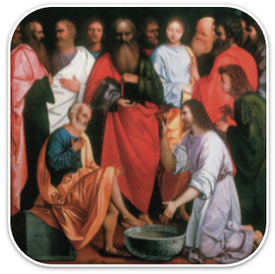Holy OrdersWhat is the sacrament of Holy Orders?
There are three levels of Holy Orders - bishop, priest and deacon. Just as Christ came to "serve and not to be served" these men are called by God, through the power of the Holy Spirit, to be servant leaders for the faithful. Their powers and responsibilities are conferred through the sacrament of Holy Orders. Who can receive the sacrament of Holy Orders? Only a baptized, Catholic man who is called by the Church to be a deacon, priest, or bishop can be validly ordained to that ministry. The role of bishops The bishop leads the diocese and is the principal teacher in the diocese. He is first among preachers and governs the people as the Vicar of Christ. All the bishops of the world form a united group called a "college". The principal bishop is the pope, the Bishop of Rome. Bishops are said to have the "fullness of the priesthood," because they have authority to offer all seven sacraments. |
The role of priests
Priests are responsible in bringing about the presence of Christ in the Church and sharing in Christ's mission as a teacher, sanctifier, and leader. By the nature of his priesthood, he is chosen to act in the person of Christ. He preaches the gospel, gives pastoral service to his community, and celebrates Mass and the sacraments. Priests have the power and authority to celebrate five sacraments - Baptism, Penance, Holy Eucharist, Matrimony, and Anointing of the Sick.
The role of deacons
A deacon is a servant and helper. There are two types of deacons. The transitional diaconate is the step before priesthood. The permanent diaconate is made up of men who are called by God to serve the faithful on a permanent basis. Deacons can baptize, distribute the Eucharist, be the ministers of the Word and officiate at weddings and funerals.
For more information about vocations, please contact the Vocations Office within the Archdiocese of Indianapolis.
Priests are responsible in bringing about the presence of Christ in the Church and sharing in Christ's mission as a teacher, sanctifier, and leader. By the nature of his priesthood, he is chosen to act in the person of Christ. He preaches the gospel, gives pastoral service to his community, and celebrates Mass and the sacraments. Priests have the power and authority to celebrate five sacraments - Baptism, Penance, Holy Eucharist, Matrimony, and Anointing of the Sick.
The role of deacons
A deacon is a servant and helper. There are two types of deacons. The transitional diaconate is the step before priesthood. The permanent diaconate is made up of men who are called by God to serve the faithful on a permanent basis. Deacons can baptize, distribute the Eucharist, be the ministers of the Word and officiate at weddings and funerals.
For more information about vocations, please contact the Vocations Office within the Archdiocese of Indianapolis.

